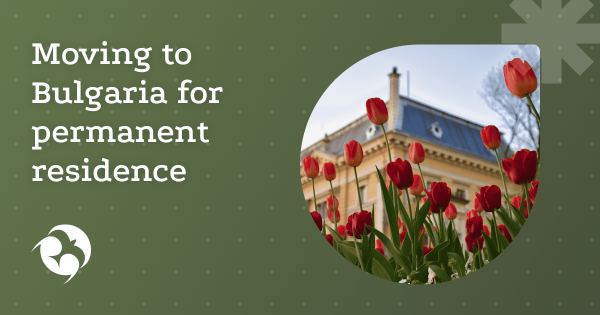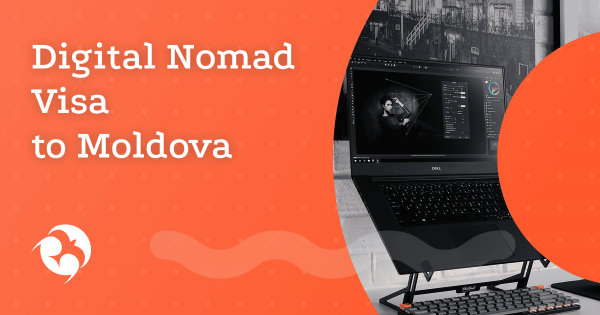Bulgaria is a country popular among immigrants with a measured lifestyle and a loyal attitude of locals towards migrants from the CIS. Since 2022, political turbulence has made Bulgaria one of the most attractive destinations for remote employees and entrepreneurs. Since the beginning of 2025, the country has entered the Schengen area and now allows non-EU citizens only on the basis of a type D visa. To obtain the latter, applicants from the CIS have to invest additional time in collecting and reviewing numerous documents. However, to become a permanent resident (i.e. it is possible to obtain permanent residence if you carefully prepare for moving to the country of origin and act without haste.
Advantages and opportunities
Immigrants are attracted by such features of life in Bulgaria:
- The right to get a job both in the country itself, whose economy is integrated with developed European countries, and throughout the EU.
- Visa-free travel in the Schengen area.
- Access to quality medicine and insurance, covering many medical services and the purchase of medicines.
- The ease of perception of the Bulgarian language and the widespread use of English in everyday life.
- Low cost of living and rental housing compared to western European countries.
- The opportunity to teach children in schools, colleges and universities with a European system and a high level of education.
- Accommodation in a mild climate.
According to the relocators from the digital sphere (who moved to Bulgaria for permanent residence after living in Moscow and the capitals of the CIS countries), Bulgaria is suitable for those who want to take a break from the lifestyle of big cities and their traffic congestion. It is worth remembering that there are no numerous professional IT communities in the country. Therefore, moving to Bulgaria will be more comfortable for those who have already built a network and consciously seek to live in a relatively small, convenient city.
Ways to move to Bulgaria for permanent residence
You can become a permanent resident based on ethnicity, employment, enrollment in an educational institution, starting a business, investing in the local economy, and reuniting with relatives. Permanent residence is also available to pensioners and people seeking political asylum.
Repatriation
This scheme is intended for foreigners who have Bulgarian roots and are able to document them. In nine out of ten cases, repatriates do not have suitable papers for this. Therefore, those who wish to move use the services of immigration lawyers to obtain ancestral documents in the state archives.
The authorities consider the cases of repatriates during the year. If the documents are in order and the ethnicity is proven, applicants receive passports after 14-18 months.
Study
Bulgaria’s residence permit is granted to full-time university students who have received a D visa and entered the country using it. The student type of residence permit is extended every year while a person is enrolled in their educational institution. After receiving his diploma, he has the right to stay in the country for 9 months to find a place of employment.
Employment
The D work visa is intended for foreign employees of Bulgarian companies and allows transition to permanent residence after 5 years of stay in the territory of the state. It is issued for the duration of the employment contract and is extended every year. The termination of the current contract without signing a new one involves leaving the country.
As for digital nomads, there is no separate freelance visa in Bulgaria in 2025. Its analogue is called an individual work permit (etc.), on the basis of which foreigners are issued a D visa. The status of an individual entrepreneur allows you to engage in private practice without opening an individual entrepreneur. Important conditions for candidates are to work in the direction indicated in the higher education diploma, document their relevant experience and pass the exam in Bulgarian at the B1 level (free conversation on everyday topics). Find out learn more about moving to Bulgaria as a digital nomad in a separate expert article.
Startup visa
A significant advantage of this status for aspiring entrepreneurs is the lack of financial investment requirements. In other words, the authorities will not check the authorized capital of a startup project and will not refuse a businessman a visa if he does not employ local workers. In order for an entrepreneur to be granted a residence permit in Bulgaria, his company must be high-tech, applying new scientific methods or discoveries, safe for the state, scalable and financially promising.
Initially, this status is issued for a year and extended for another two years. After this period, the startup visa holder must become a partner or shareholder of a local legal entity in their niche. Compliance with this requirement will be checked by the Ministry of Innovation and Development.
Startup visa documents are submitted to the Bulgarian consulate. A business plan and a project presentation must be submitted for review.
Investments
The authorities consider investing more than 512,000euros in the local economy to be an investment. A foreigner has the right to buy government bonds, shares of public or private organizations, and acquire intellectual property. It makes sense to apply for permanent residence in Bulgaria for investments through a reliable migration agency, since the process involves the investment of significant amounts and careful preparation of documents.
Family reunion
If the holder of a foreign passport is a relative of a Bulgarian citizen, the authorities will approve permanent residence for him after providing documentary evidence of kinship to the Migration Service. You will also need a sponsorship letter signed by the host party from the applicant.
A family reunification residence permit is issued for one year and this status is regularly extended. After five years of permanent residence in Bulgaria, such foreigners become permanent residents.
Pension
Pensioners have the right to move to Bulgaria and apply for permanent residence under a simplified scheme. Such foreigners must issue a bank statement stating that they have at least 3,000euros in their account and show the consular staff the rental agreement (or certificate of ownership of the apartment/house). It is important for a pensioner to be sueless and to purchase medical insurance in the amount of 30,000euros.
Refugee status
In accordance with the provisions of the 1951 Geneva Convention and the EU Directive 2001/55/EC, Bulgaria issues humanitarian visas to foreign citizens who are being persecuted in their homeland. For example, they risk ending up in prison for political or religious reasons, losing their health, or facing a threat to their lives due to their race or being in a war zone. The facts of harassment must be carefully documented. For example, they are captured in photos and videos, recorded in the format of voice messages, recorded in the form of references.
The authorities individually consider such cases for 6 months or more. All this time, refugees have been deprived of the right to work in Bulgaria, and therefore they must take care of their livelihood in advance.
Conditions of receipt
Immigration to Bulgaria begins with choosing the reason for moving and applying for a D visa at the consulate. After entering the country, a foreigner (on the basis of an agreed program of stay) receives a residence permit. If the grounds allow for a direct transfer from a residence permit to permanent residence, then after 5 years of permanent residence in the country (180 days per year or more), an application for permanent residence is submitted. Otherwise, another reason is selected for changing the status.
General documents
When applying, the candidate will definitely need:
- a questionnaire filled out without errors online in English or Bulgarian;
- a passport valid for at least one and a half years;
- two photos 3.5×4.5 cm;
- medical insurance;
- rental agreement or certificate of ownership;
- criminal record certificate;
- bank statement.
In the future, state duty receipts and additional documents will be required.
Students show a certificate of admission to the university, refugees – a record of the facts of persecution in their country, repatriates and relatives of ethnic Bulgarians – proof of kinship. Investors submit proof of purchase of securities and investments in the economy for verification, employees submit an employment contract with a Bulgarian company, freelancers submit a visa, etc., startups submit a business plan and a project presentation. A pensioner needs an extract from the FIU and from a bank account.
Documents and certificates are translated into Bulgarian or English, certified, and stamped with an apostille.
Step-by-step receipt process
- Visa application D. The general and additional package of documents are submitted to the Bulgarian Consulate for consideration. Do it online through the visa application center or through an intermediary – a migration lawyer.
- Obtaining a residence permit. Within five days of entry, you must register your local residence address and submit your residence permit documents for verification. The timing of the case assessment depends on the grounds for immigration. If a positive decision is made, the residence permit will be valid for 1 year.
- Extension of residence permit. Every 12 months for the next five years, the immigration authorities will check the availability of livelihood funds in the bank account, the fact of the extension of the employment contract, compliance with the requirements of staying in the territory of the state, the timeliness of exams and other circumstances relevant to the grounds for extending the residence permit. The case must be submitted at least 14 days before the end of the residence permit.
- Applying for permanent residence. The case will be reviewed within 3 months after receiving the documents. The foreigner will have to prove to the migration authorities that he speaks Bulgarian at a household level, is familiar with the local culture, and is law-abiding.
The minimum time to study the case of a foreigner applying for a residence permit is 30 days, and for permanent residence – 90 days. Refugee cases are considered for six months, and repatriates for up to 12 months.
The cost of the procedure
The consular fee for a type D visa is 80 €, excluding the cost of migration lawyer services, translations and notarization of documents, urgent receipt of certificates.
The state fee for an annual residence permit is 250€. Making a personal card costs foreigners 22-110€, depending on the urgency.
Separate individual points in calculating the cost of obtaining a residence permit / permanent residence are replenishment of a bank account for the required amount to take a statement and proof of financial security, purchase of medical insurance, collection of materials for filing a refugee case, archival search for evidence of kinship with ethnic Bulgarians, development of a business plan and presentation for a startup project.
Waivers and revocation of rights
A residence permit or permanent residence in Bulgaria will not be granted or revoked if:
- false information was found in the documents;
- there are not enough funds in the bank account or the source of their receipt is unclear;
- the deadline for extending a visa or other status of a foreigner has been missed;
- unpaid state duties;
- revealing the fact of a fictitious marriage;
- the applicant is on trial.
Anyone who has encountered obstacles in obtaining a D visa, residence permit or permanent residence in Bulgaria should consult a migration lawyer to properly prepare the documents and file an appropriate appeal.
Obtaining citizenship
Bulgaria allows its citizens to have a second passport. The immigrant will not have to give it up. Therefore, after 5 years of permanent residence in the country for permanent residence, a foreigner can apply for citizenship. The case will be reviewed within six months, after which the new citizen will be included in the next presidential decree and will be given a passport.
h2>How much does it cost to move to Bulgaria for permanent residence
The cost of moving depends largely on the chosen city. For example, renting a studio apartment in Sofia, located twenty minutes from the historical center and with an area of 50 m2, will cost a foreigner € 764 per month. If the apartment is located, for example, in the city of Bansko, the tenant will pay 300-500 € for a month of living in it.
The average amount spent on paying monthly utility bills for a tenant of an apartment of 100 m2 is 200-300€. Four foreign relatives will need from 2,213€ per month for daily living in a Bulgarian city.
The income tax in the country is 10%. The average salary of a digital specialist employed by a local company is $3,500-3,900.












